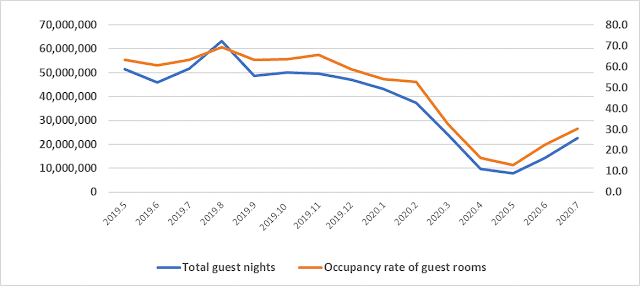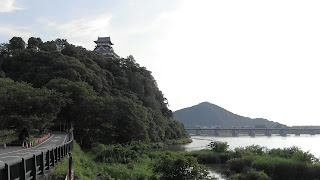Latest statistics imply Japanese tourists seem to feel relieved gradually
The new coronavirus continues to cause a serious predicament for Japanese tourism industry
Japanese resume traveling cautiously and tourist spots get crowded gradually
The Japanese government started to relax a rule limiting the size of crowds at sports events, movie theaters and others from Sep. 19, the first day of the four-day consecutive holidays.
During holidays, people appeared less cautious about traveling and returned to tourist spots. Train stations and airports were filled with people traveling and local stores and restaurants at tourist destinations around country were crowded with tourists.
Furthermore, newly generated demand for accommodations from those who want to stay in rural areas with hot springs and other charms for a long time to avoid crowding may emerge leading to the improvement of situations for tourism industry.
Some experts point out that Covid-19 pandemic may fuel the growth of Japan’s micro-tourism market which will focus on simplified itineraries with limited destinations and activities to minimize exposure to the virus.
Now Yoshihide Suga, who has credited himself for the
efforts in achieving a booming foreign tourism industry in Japan, was elected
as the new prime minister on Sep. 16. He is expected to put his top priorities on
fighting the coronavirus and turning around an economy battered by the pandemic
by promoting tourism. Some media forecasts that Japanese investors will bet on
Suga's Abenomics 2.0 and may buy tourism related stocks.




Comments
Post a Comment